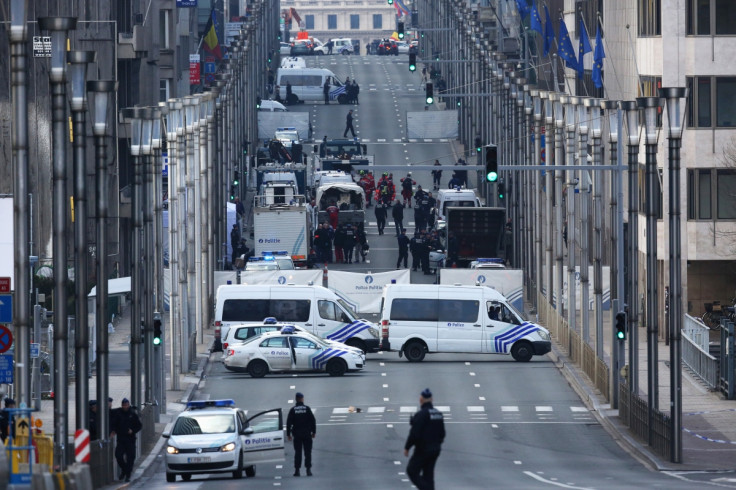Brussels attack: Did Russian spies warn Belgium of terror plot?

Experts have cast doubt on claims in Russian media that Belgian authorities were tipped off by the Federal Security Service of the Russian Federation (FSB) about the presence of three Russian-speaking Islamic State (Isis) militants planning terror attacks in the country a week ago.
Brothers Ivan and Alexey Dovbash from Belorussia and another man, Marat Yunusov, allegedly entered Belgium in February, seeking to carry out terror attacks, Russia's LifeNews reported on 14 March, citing unammed Russian security officials.
It claims that the three received training from Daesh (IS) in Syria before entering Belgium.
The claims were repeated today in several Russian news outlets, after 34 people were killed in explosions at Brussels' Zaventem airport and Maelbeek metro station on 22 March. Belgian authorities believe that suicide bombers were involved in the attacks, and LifeNews in a follow-up report named the brothers as the attackers.
Citing unnamed law enforcement sources in Minsk, Kremlin-funded Sputnik also reported the presence of the militants in Belgium, but contradicted earlier reports, claiming that the three had entered Europe "several years ago", where they were radicalised.
The source said that the eldest of the brothers, who is 28, moved to Brussels in 2008 to study, where he was radicalised. According to the report the Dovbash brothers are from the Gomel region in Belorussia, while Yunusov is originally from Dagestan.
Hours after the reports appeared Radio Free Europe's Belorussian service contacted two Belgium-based men, Ivan and Alexsey Dovbash in connection with the reports. "If," as one of the brothers said, "we are suicide bombers, why are we are still alive? If we are terrorists, then why have they not arrested us?" The men denied ever having travelled to Syria, and said they had approached police after the reports emerged, who dismissed them as rumours.
The claims come with the Kremlin currently keen to push its anti-terror credentials, and Russian state propaganda depicting Europe as weak and hesitant in its response to Islamic terrorism.
"At this point I would be surprised if this indeed is the cell that carried out the Brussels attack. The attack likely took months of planning and would have been planned by a cell mostly made of people living in Brussels and speaking the language," Michael Horowitz, a security analyst at the Levantine Group told IBTimes UK.
"It is however possible that the cell "called" on other operatives to help with the operational level (after the attack was planned), but that seems extremely risky. Not to mention that the attack was likely triggered by the arrest of Salah Abdeslam (not as a retaliation but because the planned attack may have been foiled by security forces using the intel coming from Abdeslam), and thus left little time to call for outsiders.
LifeNews has a track record of smearing people as Isis extremists, with the tabloid recently alleging that Belfast academic and former EU special representative to Afghanistan Michael Semple is an Isis recruiter.
In 2015, the network broadcast an interview with an 'expert', who claimed that the Charlie Hebdo attacks in Paris were instigated by US intelligence.
© Copyright IBTimes 2025. All rights reserved.




















